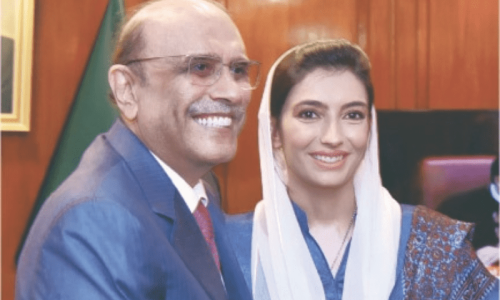ISLAMABAD, July 31: The US government’s development strategy for Pakistan lacks leadership, mission, transparency and adequate exploitation of non-aid tools, says the ‘2012 assessment of the US approach to development in Pakistan’ released by the Centre for Global Development (CGD).
USAID has taken steps to consolidate the aid programme, but problems persist and go well beyond any one US agency and the White House, State Department and Congress all have critical role to play, says the assessment titled “More Money, More Problems”.The Washington-based CGD concludes that in the three years since the passage of the Kerry-Lugar-Berman (KLB) bill, America’s development approach towards Pakistan has failed to achieve what its creators and administration proponents hoped it would. Three are many factors over which those responsible for the development effort in Pakistan have little control: the depth of development challenges, anti-American sentiment over drone attacks and deep skepticism of Pakistanis about the US aims, Islamabad’s reform failures and diplomatic incidents that have interrupted dialogue.
The report says all these have limited America’s ability to carry out an effective development programme built on a substantial increase in aid and better trade and investment strategies.
External constraints aside, internal bureaucratic and political hurdles have been particularly damaging in Pakistan where the US approach has been poorly insulated from security and diplomatic pressures and where the size and timing of the KLB legislation created counter-productive expectations of what could be achieved both in Washington and in Pakistan.
However, despite all the pressures the aid programme has continued though it is hard to deny that its effectiveness has been compromised, the report says.
Looking to the future, the CGD has formulated five recommendations to sustain the economic and development policy: avoid the rush and spend KLB aid over more years, focus on what the US can do best, development with friends, channel more dollars through other donors, and focus on transparency.
The report suggests the US should commit to maintaining policy engagement at the federal and provincial levels on Pakistan’s economic and social development challenges, particularly in areas where it can contribute at the technical and practical level, such as tax policy, trade policy, higher education, water, agriculture and energy.
Given the large amounts of un-obligated funds for Pakistan, constraints on the aid-delivery machinery and implementation challenges, Congress and the administration should agree on a scaled-back programme of assistance for the fiscal year 2013 at least.
Washington should adhere to the KLB commitment of spending $7.5 billion on civilian programmes, but the time horizon should be extended from 5 to 10 years. An overall reduction in the civilian assistance budget seems likely in any case given the US domestic budgetary pressures.
“In our judgment, this would include a focus on higher education, energy, and support for innovation and civil society,” the report says, adding non-aid instruments that promoted trade and investment may be the best assistance the United States could offer.
The US should continue to invest in Pakistan’s development but distinguish between financing development and delivery of assistance. At this stage, other bilateral donors are reluctant to co-finance programmes with the United States, given complicated and onerous US procedures.
The administration should take steps now to work with the Congress to make it possible in Pakistan at least to channel more KLB funds through trust funds at the World Bank and the Asian Development Bank, and to make it easier to take sensible advantage of the strengths of other donors like the United Kingdom Department for International Development.














































Dear visitor, the comments section is undergoing an overhaul and will return soon.